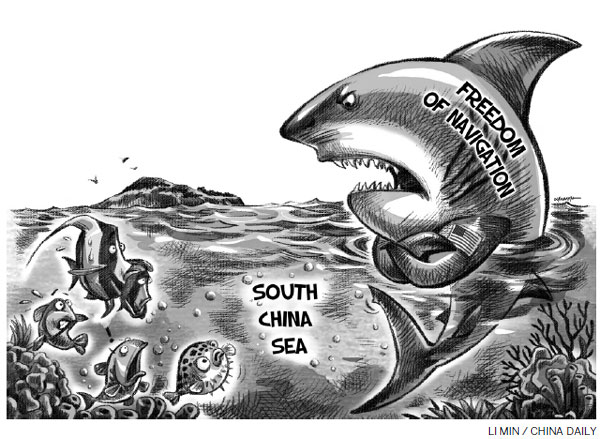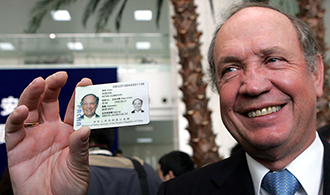Harris playing with provocations
(China Daily) Updated: 2016-03-06 15:34

Harry Harris, chief of US Pacific Command, announced in New Delhi on Wednesday that the United States, India and Japan would conduct a joint naval exercise in the waters north of the Philippines. Even earlier, to maintain the US' hegemony in the West Pacific, Harris had warned China not to establish an "air defense identification zone" over the South China Sea. No doubt he has outperformed all of his predecessors in heightening tensions in the South China Sea.
As he is a high-ranking US military officer, Harris should understand his role in forging Sino-US security ties and broader bilateral relations. Regrettably, he has shown little interest in doing so or helping maintain regional peace.
He may be committed to protecting US interests, but he had better learn where the boundary of China's interests is. He should know that many Chinese want their country to be more determined in countering the US' overt attempts to intervene in the South China Sea issue. The more provocative the US becomes in its words and actions, the more determined Chinese people will become to fight back.
Besides, the US has to struggle in emboldening India, Japan and Australia into a united front against China.
As Harris and his command possess the most advanced weapons, they can make Chinese positions in the South China Sea unsafe, but they should know that if offended, China could make US troops in the sea insecure.
Harris' provocative words and actions just remind China of the need to reinforce its facilities on the reefs and islands in the South China Sea for emergency military deployment. What other choice would China have except resorting to military buildup in the South China Sea in the face of the US' provocative military advances? ----Global Times











